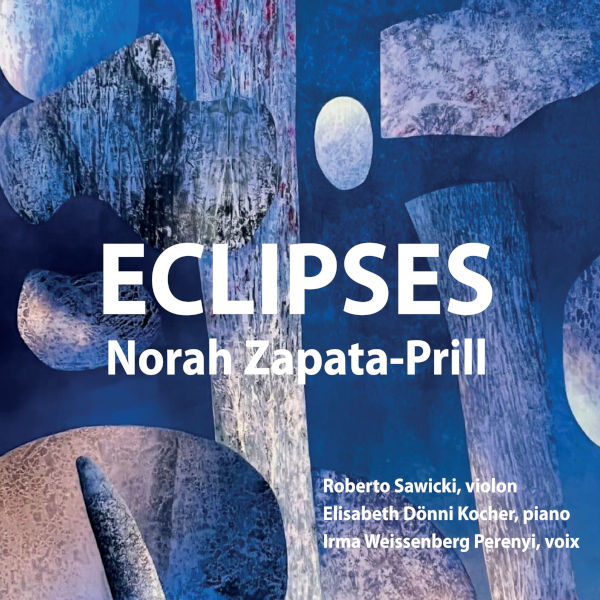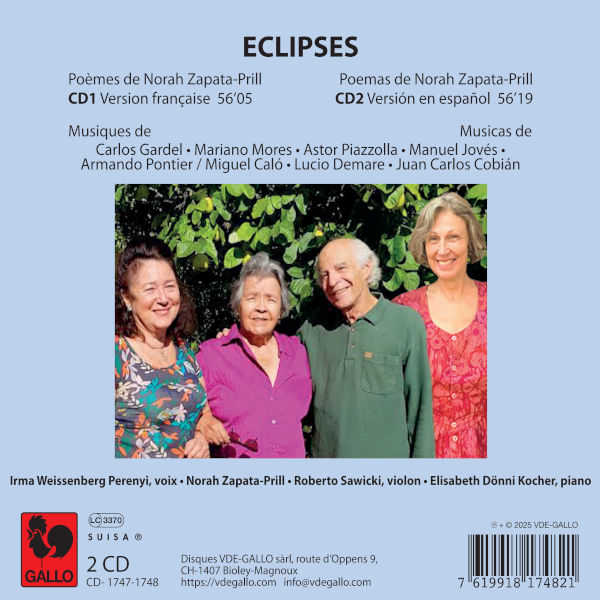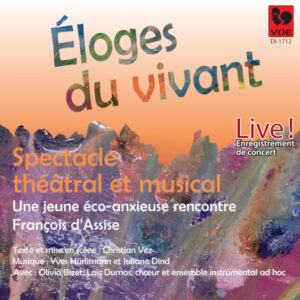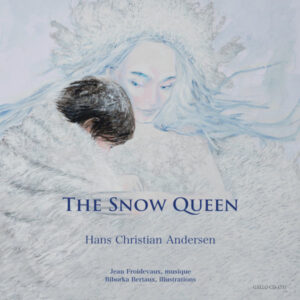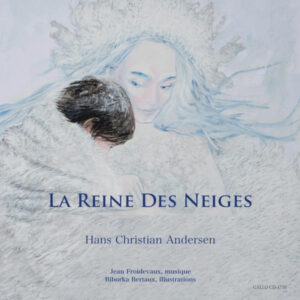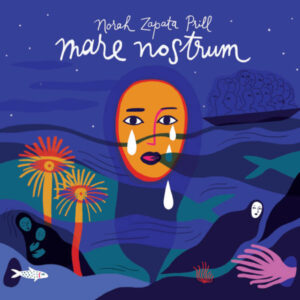Quelques Extraits / Some Excerpts
CD1: French Version
CD2: Spanish Version
Eclipses: 57 Poems by Norah Zapata-Prill - Irma Weissenberg Perenyi (2 CDs)
Eclipses: 57 Poems by Norah ZAPATA-PRILL
CD1: French version (Link for downloading and streaming the French version)
CD2: Spanish version (Link for downloading and streaming the Spanish version)
Roberto Sawicki, violin
Elisabeth Dönni Kocher, piano
Irma Weissenberg Perenyi, narrator
PREFACE
With *Eclipses*, poet Norah Zapata-Prill explores a realm of experience that few writers have addressed in the first person. We already know that her poetry speaks of the intensity of concrete, evident experience, both personal and collective: bodies, landscapes, encounters, phenomena—those manifestations in which the unfathomable within humanity and the world is brought into question.
Here, however, she enters a different zone. *Eclipses* carries into language what emerged and was revealed through a liminal experience: in the life of a severely wounded body, in the apprehension of death, in episodes of extreme pain and fear, even in dreams—in other words, within the vast complexity that characterizes a clinical situation.
For this book to exist, a completely unique experience was necessary—an experience that, as we shall see, gave rise to truths and visions.
“The Milky Way keeps me in a trance
It shatters my mirrors
My masks
Into pieces
I seek to make sense of this rift in the light of my wounded self”
Trances and visions are revealed to us here, because the personal and unique experience brought into language—offered through writing—becomes a conceptual, inclusive, and open experience. It becomes a possibility for human understanding.
The word *eclipse* comes from the Greek ἔκλειψις, meaning “disappearance,” “abandonment,” and also from ἐκλείπω: “I abandon.” In ancient astronomy, the *ecliptic* was the line of motion where eclipses occurred.
Today, we know that even total solar eclipses allow a halo of light to shine through, and that some spectacular lunar eclipses tint the Moon a coppery hue. There is no absolute disappearance, no complete abandonment.
It is along these abyssal lines of motion between light and darkness, between brightness and concealment, that life takes shape. Something of what we do not see is there.
- Categories
- Composers
- Interprets
- Booklet
